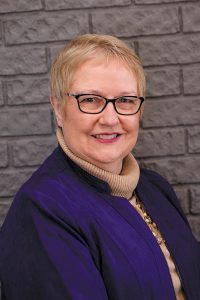May 31, 2023
Your Advocacy Connection

We Solve Long Term Care Problems
OOPS – What Happened to my Retirement Money?
 By Gail Glockhoff-Long
By Gail Glockhoff-Long
GolderCare Solutions
Benefits Advocate
Aging without a plan is risky business. There are so many things that can go wrong. Aging involves some of the biggest financial decisions of your life. Planning makes all the difference when it comes to options. Over the years we have seen many variations of these scenarios due to lack of
planning.
The jig is up – You decide to retire early because you want to be young enough to enjoy retirement, or your health is declining, or you may be caring for a spouse. You are probably OK IF you have a big savings, good pension, 401(k), and high social security. But you can only spend your savings once. If you spend a big chunk on a bucket list 6-week safari or buy a new house out of your price range, and then spend more on remodels than you will get out of it, or go on a spending spree – that money is gone. Will you have to pay for health insurance until you reach Medicare age? Did you calculate that into your retirement plan? Retiring early sounds great but is generally most appropriate for those with a big savings account and a family history of short life expectancy. If you need the retirement money early to live on, start planning for how to make it last as long as possible. Running out of money severely limits your housing and care options.
Not working – There are families where an adult child never fully launches. They continue to live with parents. In some cases, the child is the caregiver for grandparents / parents. In other cases, they supply companionship and help keep the house running, allowing mom to stay home. The child never joins the working world. This may sound great when mom is enjoying your companionship and you are avoiding the stress of the working world, but if you do not have at least 40 quarters of qualified work credits, you are not eligible for Medicare or Social Security. Your Social Security amount is based on that earnings record. There are provisions for children adjudicated disabled before the age of 21, but if you do not fit that category and do not have 40 quarters, you will receive no Social Security and will have to buy into Medicare every month when you hit 65. If you leave the workforce – often to raise children – and then develop a debilitating disease in middle age without having returned to work, you are not eligible for Social Security Disability Income. To apply for disability, you generally have to have been employed at the time of the injury or illness. SSDI pays for disability from your gainful employment. If you are not working, you are not eligible.
Supporting Adult Children – There are four major consequences of ongoing support of an adult child.
(1) you not having enough money to live on because you are giving it to the adult child;
(2) you’re being disqualified from Medicaid due to “gifting” when you need care;
(3) creating a person that is totally unprepared to survive on their own when you pass or go into care and can no longer support them; and
(4) potential family strife between siblings if they perceive that child was unjustly favored.
Supporting an adult child is considered “gifting” in the eyes of the state if you should need Medicaid to pay for your care. There are ways to set up a personal loan and repayment plan to help the child buy their first house or get resettled after a divorce. That is different than being the on-going support every month because they choose to not make enough money to support themselves in the style they want to live. At the time you need care, Medicaid can look back 5 years and can delay paying for your care until you have privately paid an amount equivalent to the total amount you gifted. You could end up needing nursing care and no one will take you because you are out of money and have a big Medicaid disqualification penalty. Teaching financial responsibility early so your child is not dependent on you as an adult will help both of you. If your child is one that will never be financially responsible, plan ahead by setting up a trust with a trustee that will control the funds and help preserve them for you first and then for your adult child.
Hope is not a Plan. Most people will need some level of care during their lifetime whether independent senior living, assisted living, memory care, or full nursing. Our country has no good way to pay for that care. HUD housing, Veteran’s benefits, Medicaid Home and Community Based Services, and Medicaid Nursing home services all have different sets of governmental rules, and you may or may not qualify. There is no guaranteed safety net. If your spouse is in assisted living memory care and you need to apply for Medicaid to pay for that care, there are very few options. Your spouse may be moved into nursing level of care earlier than you had hoped in order to qualify for funding. The importance of planning ahead is to give you the most options for care if and when you or your spouse need it.
Talk to an expert on the costs of aging. Talk about your goals, your health, income and assets. A plan is not concrete – it is a direction to give you the most options when you may need care. Failing to plan is generally considered planning to fail. Hope is not a plan. At the end of the day, nothing substitutes for good planning.
GolderCare Solutions is an independent advocacy group for seniors, the disabled and those that care for them. GolderCare has offices in Moline and Bettendorf. You can reach GolderCare at (309) 764-2273 or learn more at www.goldercare.com.
Filed Under: Health & Wellness
Trackback URL: https://www.50pluslife.com/2023/05/31/your-advocacy-connection-57/trackback/


